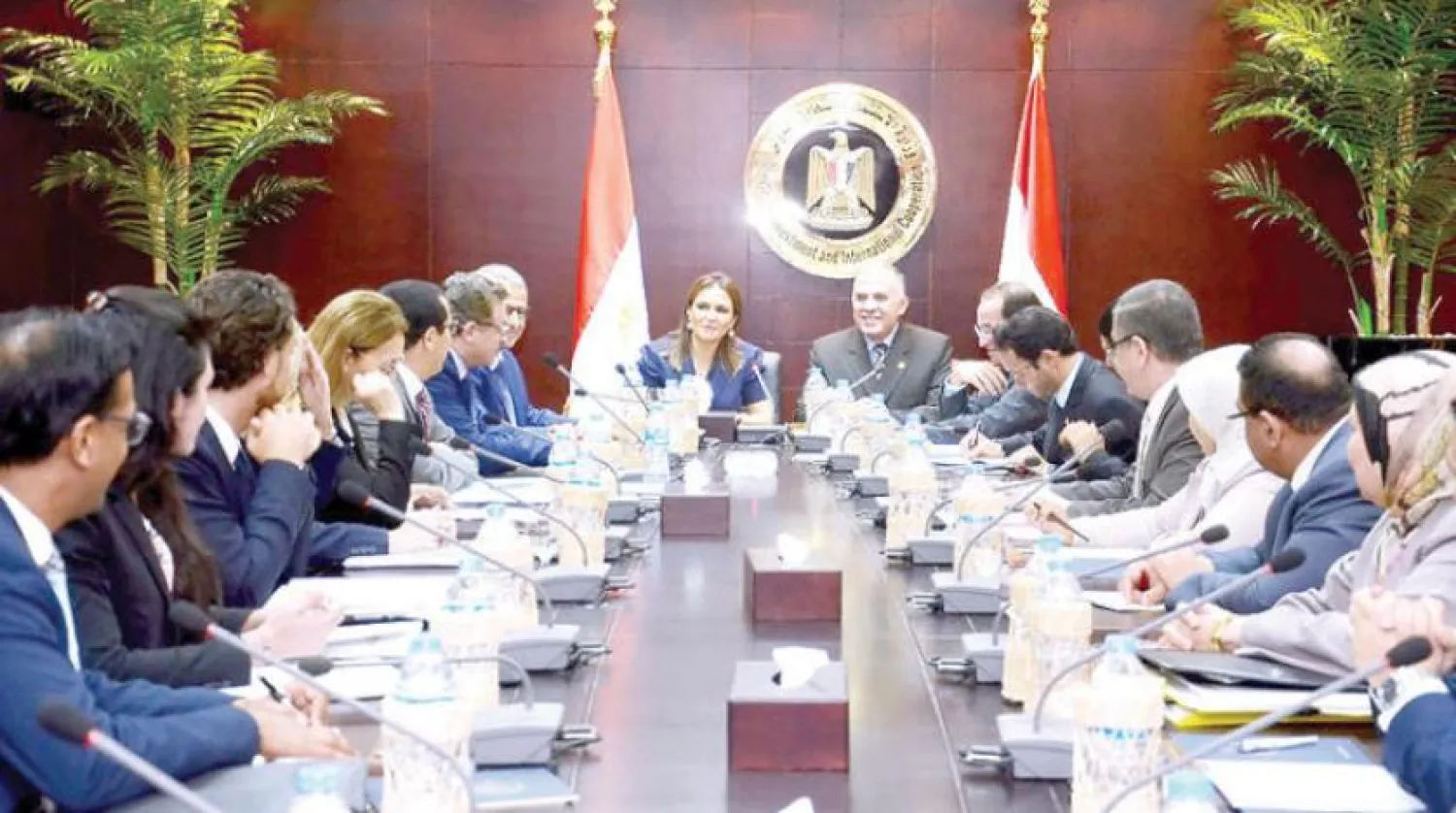Egyptian officials have discussed with a delegation from the African Development Bank the signing of the third and last $500 million tranche of a $1.5 billion AfDB loan.
The discussions took place between Minister of Investment Sahar Nasr and Minister of Water Resources and Irrigation Mohamed Abdel-Ati on one side and the AfDB delegation led by the bank’s Vice President Khaled Sherif on the other.
Talks focused on the bank’s proposed funding for several projects and the measures taken by Egypt to improve the investment climate, including President Abdel Fattah el-Sisi’s approval of the investment law.
The two sides also discussed the signing of the $500 million loan agreement with the AfDB by the end of 2017.
Nasr stressed the importance of receiving the third and last tranche of the $1.5 billion loan and loaded the bank’s cooperation in backing the Egyptian government’s economic program.
The minister noted that the government’s top priority lies in providing better living standards for Egyptian citizens, and implementing projects, which provide employment opportunities for young people, women and the most needy families, and that improve the infrastructure such as electricity and transportation.
Nasr invited Sherif to the three-day Africa 2017 investment conference that will be held under Sisi’s patronage on December 7 in the resort of Sharm el-Sheikh.
The bank’s delegation expressed optimism at the economic reforms undertaken by the Egyptian government, saying the country should be a good magnet for more investments.
Sherif said that Egypt is a founding member of the AfDB and the second largest contributor in the bank, which finances 29 projects with a total value of $2.3 billion.
He also stressed the importance of holding the Africa 2017 investment conference for greater African integration.









